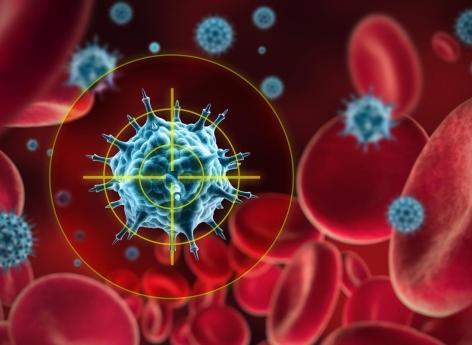primary
- Acquired immunodeficiency syndrome, or AIDS, is caused by infection with the human immunodeficiency virus (HIV), which destroys immune defenses.
- In 2017, nearly 37 million people were living with the virus and 940,000 people died from it.
Rare HIV carriers, called “post-treatment controllers” or “PTCs,” are able to control the infection after stopping antiretroviral therapy.
New treatment strategies
Understanding the underlying mechanisms that govern the immune response in these people is essential in order to develop vaccines against HIV and/or new treatment strategies that target remission of infection.
A new French paper, published in Nature Communicationstherefore studied the humoral immune response—that is, mediated by specific antibodies—in some PTCs in which transient episodes of virus activity were observed. The researchers showed that their humoral immune response was both effective and robust, which could contribute to infection control in the absence of treatment. Explanation of the difference from Pasteur Institute, Inserm, AP-HP and ANRS.
Two types of humoral immune response
More specifically, two types of humoral immune response have been identified: a strong and a weak type. The discovery of these two classes of humoral immune response, depending on the PTC profile, sheds new light on the anti-HIV phenomenon.
For Hugo Moquet, researcher at the Pasteur Institute and principal investigator on the study, “These results show that establishing early antiretroviral therapy can facilitate the optimal development of humoral immune responses, making it possible in some cases to counteract viral rebound after treatment has stopped.”

“Subtly charming problem solver. Extreme tv enthusiast. Web scholar. Evil beer expert. Music nerd. Food junkie.”

